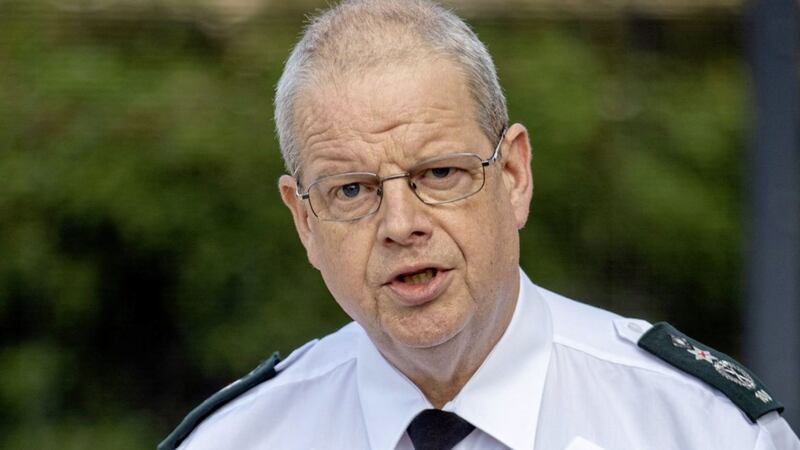The DUP and Sinn Féin put the Bobby Storey funeral behind them last September when Arlene Foster and Michelle O’Neill resumed their joint coronavirus briefings.
O’Neill apologised for hurt caused and accepted public health messaging had been undermined. Foster acknowledged the apology, which met terms she had set out the week before. Both parties then moved swiftly on, leading the executive through the epidemic’s second wave. They did not fall out again until November’s row on easing lockdown, by which point the funeral controversy had faded to whataboutery. The executive survived that, then the end of the Brexit transition period and the DUP’s U-turn on the sea border, by which point the funeral was history.
All of this is worth recalling to measure the damage caused by the Public Prosecution Service’s decision not to pursue any charges.
There was no need to avoid prosecutions for the sake of political stability. We had reached stability as far as the funeral was concerned. Nor need pursuing charges have reopened the argument.
Breaching Covid regulations is a summary offence, usually punishable by a fixed penalty notice. If it goes to court at all it is to a magistrate’s court, where the maximum penalty is a £5,000 fine (a fraction of this would be typical for attending a proscribed event).
There was never any prospect of a Sinn Féin politician being arrested, bailed or remanded, let alone imprisoned. Nobody could even have received a criminal record - police can only record such convictions for intelligence purposes, a ship that sailed long ago. Politically, the funeral was serious; legally, it was little worse than a traffic violation.
So there would have been no repeat of the 2015 Falls Road press conference, when Storey raged against his own arrest for an IRA-linked murder. Any republican charged with a Covid breach could have accepted their fine, walked calmly out of Laganside courts and given the cameras the party line: ‘sorry for hurt caused, it was important to attend the funeral of a comrade’.
No further honour would have been lost and the DUP would gladly have left it there.
Alternatively, republicans could have contested charges or convictions and let a magistrate or judge decide their fate. The DUP would have liked that less but it would have been too pedestrian an outcome to have caused a political crisis.
Instead, the PPS has decided no convictions could be secured. While it is entitled to do this and has taken the unusual step of explaining its reasoning, its explanation is extraordinary. The PPS says Covid regulations were confusing and inconsistent. Ignorance of the law is no defence, especially if your party helped write the laws. The PPS says funeral organisers engaged with the PSNI, giving republicans a “reasonable excuse” for their conduct. That is no reason not to put the excuse before a judge, as the PSNI expected - it recommended prosecutions when sending files on the 24 people in question to the PPS.
The Code for Prosecutors sets two tests for a case to proceed: is there sufficient evidence for a conviction and is it in the public interest. There is a mountain of evidence from the funeral, while the public interest rules prioritise prosecution for public safety and where suspects are people in authority. Being a politician should make you more likely to go to court, not less.
Controversy over the funeral grew from the perception of special treatment, with comparisons made to the fining of Black Lives Matter protesters. The way to resolve this toxic suspicion was to leave no room for further perceptions of special treatment. The PPS has demonstrably failed on that score. Within minutes of its decision, TUV leader Jim Allister was demanding the DUP quit Stormont and loyalists were promising to disregard lockdown and take to the streets over Brexit.
Foster’s call for the chief constable to resign was an act of desperation - Simon Byrne is not seen as a success, so he would be a useful fall guy. But the fault lies with the decision of the PPS, no matter how much it has tried to pass the buck back to the PSNI. Unlike policing, prosecution is politically unaccountable by design, so no heads can be called upon to roll.
It is not even in Sinn Féin’s interests to have this controversy blow back up again on a scale that damages power-sharing and plays badly with voters, north and south.
At least that shows this is cock-up rather than conspiracy.









